Foreign
Key reasons Ethiopia was never colonised

Ethiopia is the only African country that was never colonised by Britain. While many African countries were colonised by European powers in the late 19th and early 20th centuries, Ethiopia successfully resisted colonisation, became Africa’s oldest independent state and the only African country that avoided colonial rule.
Although Italy only occupied Ethiopia in 1936 and got kicked out in 1941, it is still considered as the only African nation that was never colonised by the Europeans.
Ethiopia’s journey towards independence began long before the ‘scramble for Africa’ – the period between 1884 and 1914, when the European colonisers partitioned unexplored African continent into protectorates, colonies and ‘free-trade areas’ – in the late 19th century. Ethiopia had established itself as a powerful empire in the Horn of Africa, renowned for its strong monarchies and proud traditions with a sense of national identity and unity which proved crucial in facing external threats.
As European powers embarked on their quest for colonial domination in Africa, Ethiopia emerged as a prime target due to its strategic location and abundant resources. However, unlike many African nations – like Nigeria, Kenya, South Africa, Sierra Leone, etc – that succumbed to European armies and colonial ambitions, Ethiopia resisted all of these.
One of the defining moments in Ethiopia’s struggle against colonialism came in 1896, during the Battle of Adwa. In a remarkable display of unity and military prowess, Ethiopian forces, led by Emperor Menelik II, defeated the Italian army, which sought to establish colonial rule and with the victory at Adwa, the myth of European invincibility was broken thereby cementing Ethiopia’s status as an independent nation.Some of the reasons why Ethiopia was able to stand firm against the Europeans are:
1. Ethiopia was able to use diplomacy and strategic alliances to maintain its independence. Emperor Menelik II forged alliances with European powers, such as France and Russia, which provided Ethiopia with economic and military support. These alliances also made it clear to potential colonizers that any attempt to invade Ethiopia would be met with resistance from a powerful coalition of nations.
2. Ethiopia was able to modernize its military and political institutions, which made it a formidable opponent to potential colonizers. The country’s ruler at the time, Emperor Menelik II, recognized the threat of European imperialism and began a program of modernization and reform investing in modern weapons, training its army and reforming the country’s legal and administrative systems, making Ethiopia a more centralized and efficient state.
3. Ethiopia was an independent nation, with a long and proud history of resistance to foreign rule. The country had successfully fought off attempts at invasion by neighboring countries, such as Egypt and Italy, before the scramble for Africa even began.
Furthermore, Ethiopia’s terrain and geography served as challenges to colonizers. The country’s mountainous landscapes and remote regions made it difficult for foreign armies to penetrate deep into Ethiopian territory, providing a natural defense against external threats.
Ethiopia’s status as the only African country that was never colonized by Britain is proof of the resilience, courage, and determination of its people. Through centuries of struggle and sacrifice, Ethiopia emerged triumphant, preserving its independence and inspiring generations of Africans to fight for their freedom with its legacy becoming the nation that defied the odds and carved its destiny amidst the noise of colonialism.
Foreign
Journalists rally against White House’s decision to modify allocation of seats in briefing room

The White House said Monday it is “seriously considering” taking control of deciding which journalists get seats in the famed briefing room, in the latest bid by President Donald Trump’s administration to exert power over the media.
The 49 spots in the press room, where spokespeople, officials and occasionally the president take the podium, have long been allocated by the non-partisan group of independent journalists, the White House Correspondents Association.
White House Press Secretary Karoline Leavitt accused the WHCA of trying to maintain a “monetized monopoly over the briefing room.”
“As for switching up seating in the briefing room, it’s something we are seriously considering,” she told Fox News.
“The briefing room is part of the People’s House, it belongs to the American people. It does not belong to elitist journalists here in Washington DC.”
News outlet Axios reported earlier that the White House wanted to take control of the seating chart to give more prime front-of-room spots to new media, and move some legacy outlets further back.
The WHCA, of which AFP is a member, opposed the “wrong-headed” move.
“The reason the White House wants control of the briefing room is the same reason they took control of the pool: to exert pressure on journalists over coverage they disagree with,” WHCA President Eugene Daniels said in a statement.
The WHCA and the White House both said they had tried to broker a meeting on the issue.
It is the latest effort by the White House to shape who covers Trump after taking control from the WHCA in February of the “pool” that covers the president in the Oval Office and when he travels on Air Force One.
The White House has added access to the pool for new and in several cases openly pro-Trump media, while reducing access to mainstream organisations.
It also continues to bar the Associated Press news agency from almost all presidential events as it refuses to refer to the Gulf of Mexico as the “Gulf of America,” the name newly decreed by Trump.
AFP
Foreign
Ghana: Govt cancels sale of diplomatic properties in Nigeria, Zambia
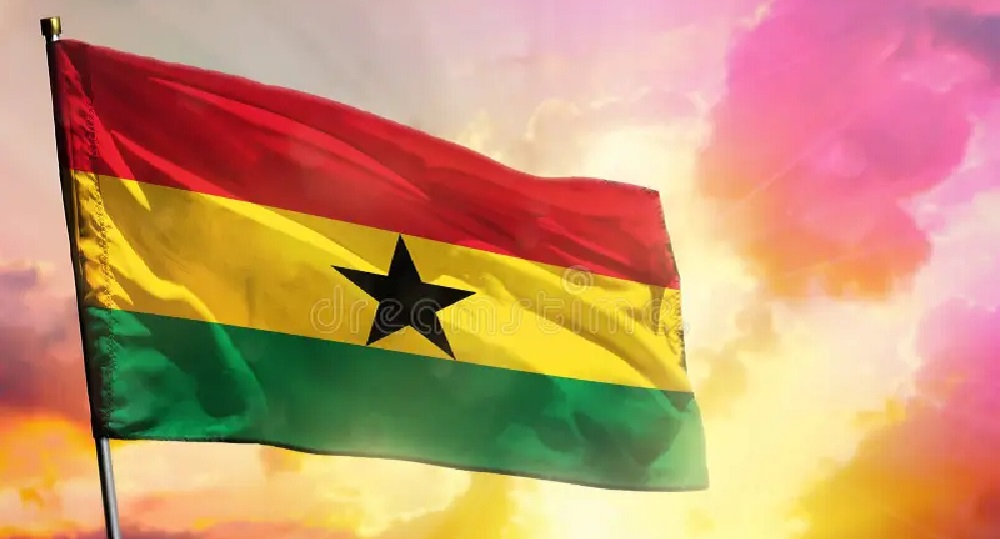
The Ghanaian government has canceled two transactions initiated by the previous administration under the leadership of former president Nana Akufo-Addo to sell Ghanaian diplomatic properties in Nigeria and Zambia.
“Yesterday I informed Parliament that with the full backing of President Mahama, we have cancelled two transactions initiated by the previous Akufo-Addo/Bawumia government to sell Ghanaian diplomatic properties in Nigeria and Zambia.” Minister of Foreign Affairs, Hon. Samuel Okudzeto Ablakwa announced on his X.
According to the Member of Parliament for North Tongu, the current administration is determined to retrieve an illegal part payment in one of the transactions.
Adding that those who are involved in these illegal transactions will be sanctioned.
“Determined efforts are underway to retrieve an illegal part payment in one of the transactions. The masterminds, who are currently on the run will surely be found and sanctioned.” He added.
He said the NDC government is committed to their promise that no diplomatic property belonging to the people of Ghana would be sold under President John Dramani Mahama administration.
Hon. Ablakwa warned that none of our diplomatic properties either in Ghana or any of our 71 diplomatic missions abroad are available for sale.
“We mean it when we say no diplomatic property belonging to the people of Ghana would be sold under our watch. Notice is hereby served that none of our diplomatic properties either in Ghana or any of our 71 diplomatic missions abroad are available for sale — hands off!” He stated.
According to him, they will use the principles of Operation Recover All Loots (ORAL) to protect properties belonging to the state as well as the public purse.
“The principles of ORAL, strict abhorrence for State Capture and the national interest shall continue to guide our decisions. For God and Country.” Ablakwa assured.
Source: Elvisanokyenews.net
Foreign
Namibia to enforce visa requirement on U.S citizens
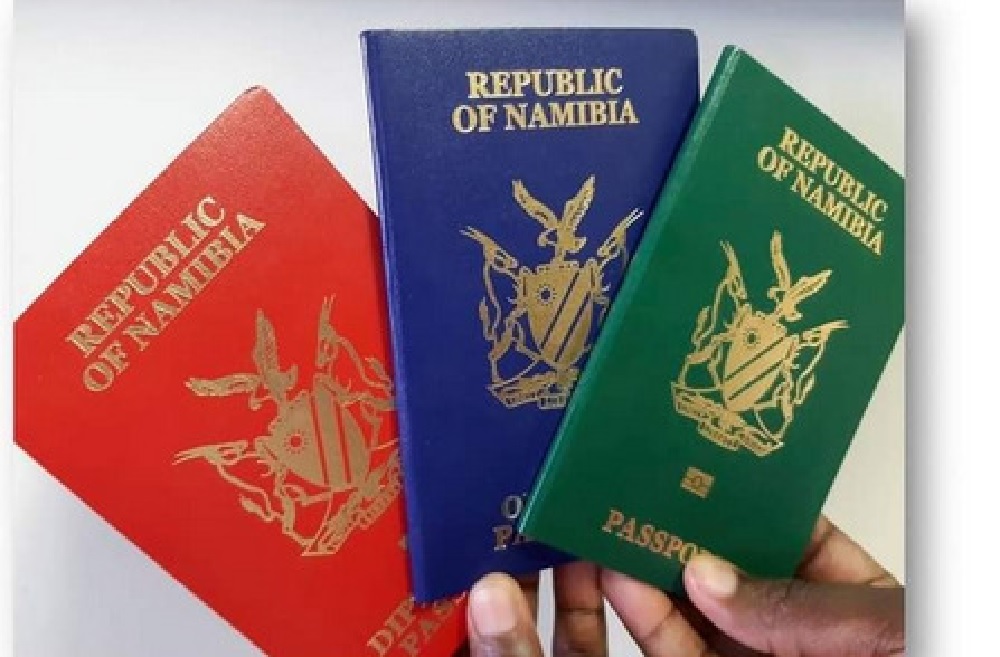
Namibia has imposed visa requirements on U.S. citizen tourists starting from April 1, 2025.
According to the Namibian Government, U.S. citizen tourists who wish to visit the Southern African country should obtain a visa before entering the country.
The U.S Embassy in Namibia posted that US visitors are required to apply for a visa through Namibia’s online visa on arrival portal: https://eservices.mhaiss.gov.na/visaonarrival.
“Beginning April 1, 2025, the Namibian Government will require U.S. citizen tourists to obtain a visa prior to entering the country. Visitors are recommended to apply for their visa in advance of planned travel through Namibia’s online visa on arrival portal: https://eservices.mhaiss.gov.na/visaonarrival. Visitors using this online visa application system must carry a hard copy of their approval notice when they travel.” The Embassy posted.
The Namibian Government added that visitors arriving in Windhoek, Walvis Bay, Katima Mulilo, Ngoma will also have the option of purchasing a tourist visa upon arrival at the respective airport or border crossing point.
“Visitors arriving in Windhoek, Walvis Bay, or entering at high volume border crossing points (e.g., Katima Mulilo, Ngoma) will also have the option of purchasing a tourist visa upon arrival at the respective airport or border crossing point. Namibia’s visa on arrival system is new and implementation details are subject to change.” They added.
The decision by the Namibian government to impose visa requirements on US citizens has met mixed reactions on social media.
While others are commending the government, others have also raised concerns about the negative impact on the Namibia economy as tourism contributes higher income to the government.
Some political actors believe Namibian female President, H.E. Dr. Netumbo Nandi-Ndaitwah took the decision to reciprocate the US government visa restrictions and some Western countries who have denied visa free entry to Namibians.
Source: Elvisanokyenews.net
-

 News2 hours ago
News2 hours agoBREAKING! Finally, Senate lifts suspension on Natasha
-

 News20 hours ago
News20 hours agoWike’s Aide reacts as photo appears online, points accusation finger at paid failed actress
-
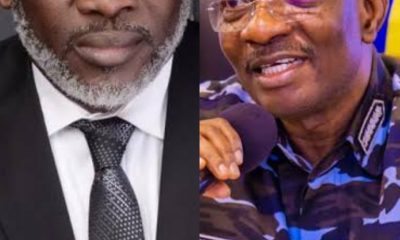
 News16 hours ago
News16 hours agoFormer HoR member, TeeJay Yusuf calls on IGP, Kogi govt, other agencies to curb rising insecurity in Okun-Yoruba
-
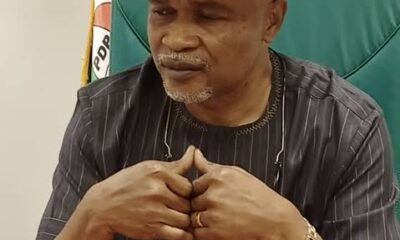
 News11 hours ago
News11 hours agoReps Minority Caucus Condemns Killings in Edo State
-

 News14 hours ago
News14 hours agoSad! Popular actor, Richard Chamberlain is dead
-
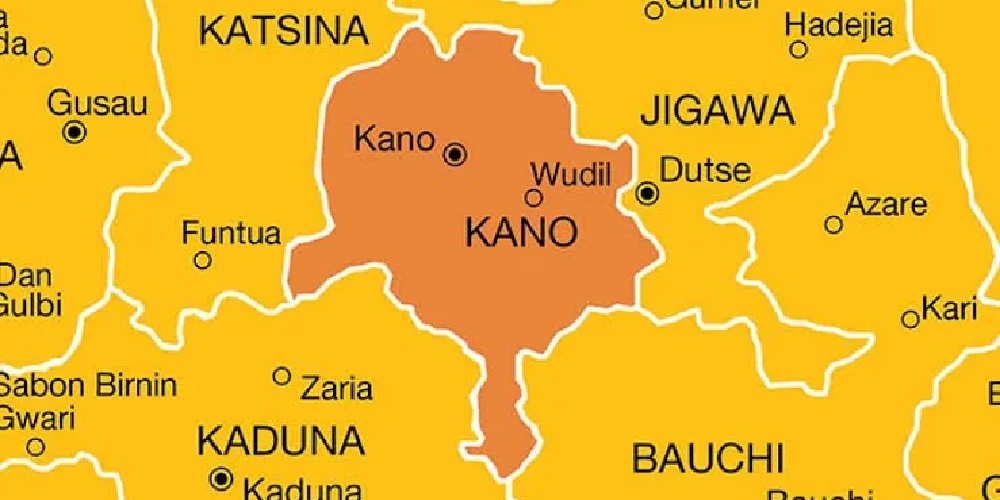
 News18 hours ago
News18 hours agoEdo Killings: Kano Govt Sends Fact-Finding Delegation, Demands Justice
-
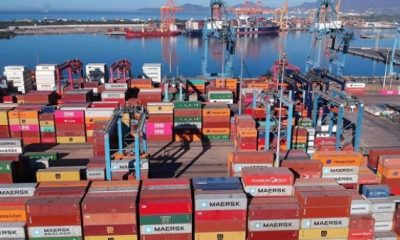
 News15 hours ago
News15 hours agoMali, Niger, Burkina Faso Impose 0.5% Levy On Goods From ECOWAS Nations
-
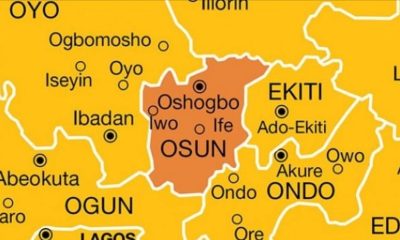
 News18 hours ago
News18 hours agoJust in: Popular Osun Monarch Joins Ancestors





